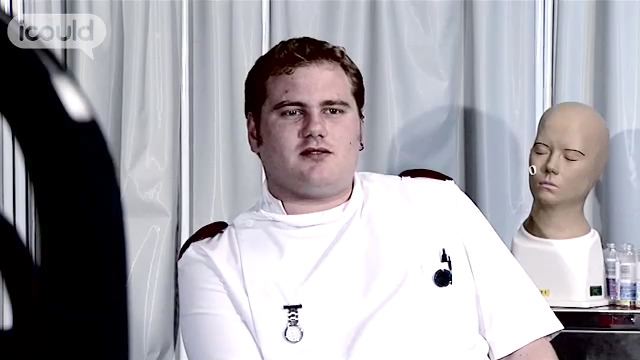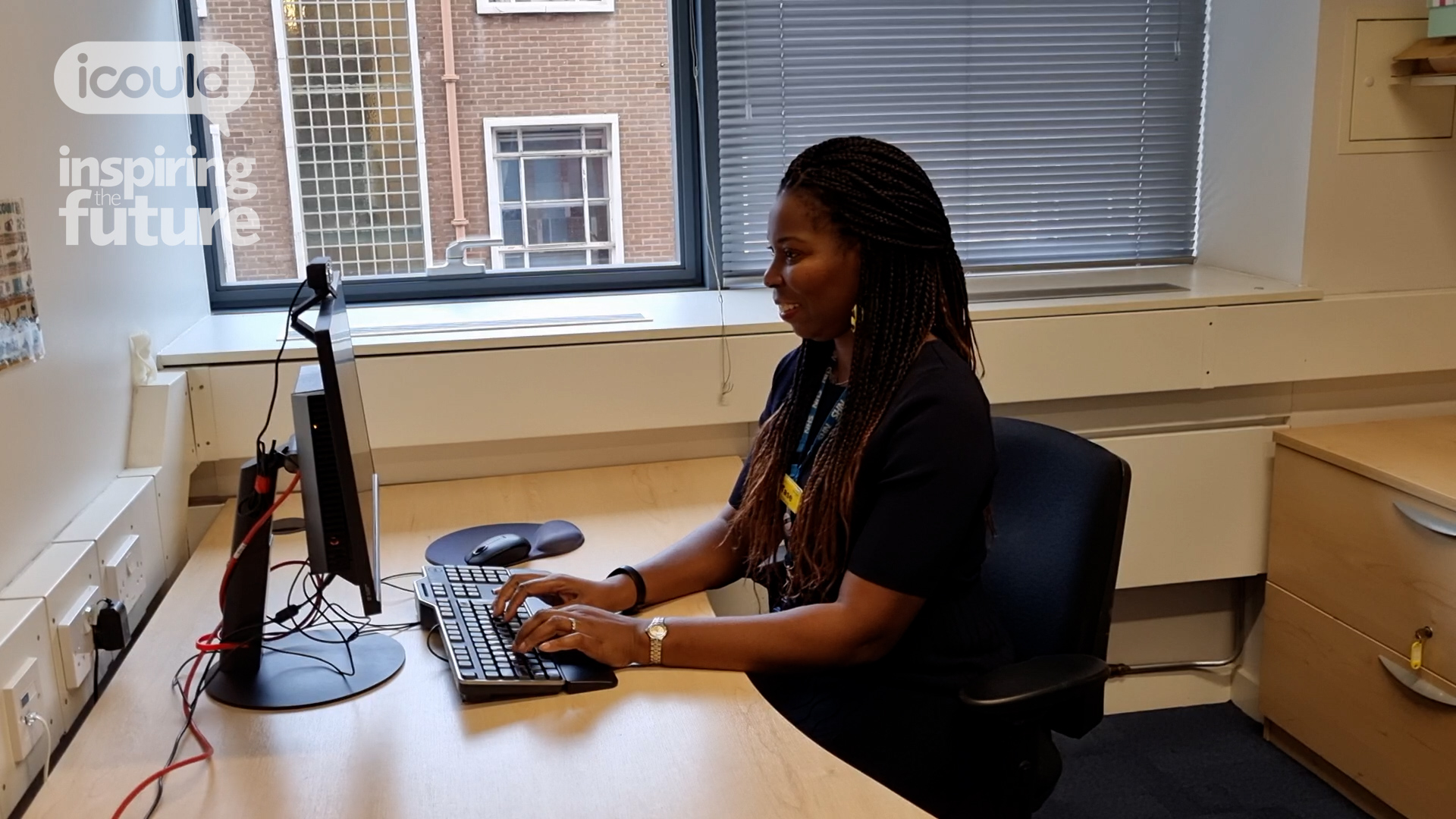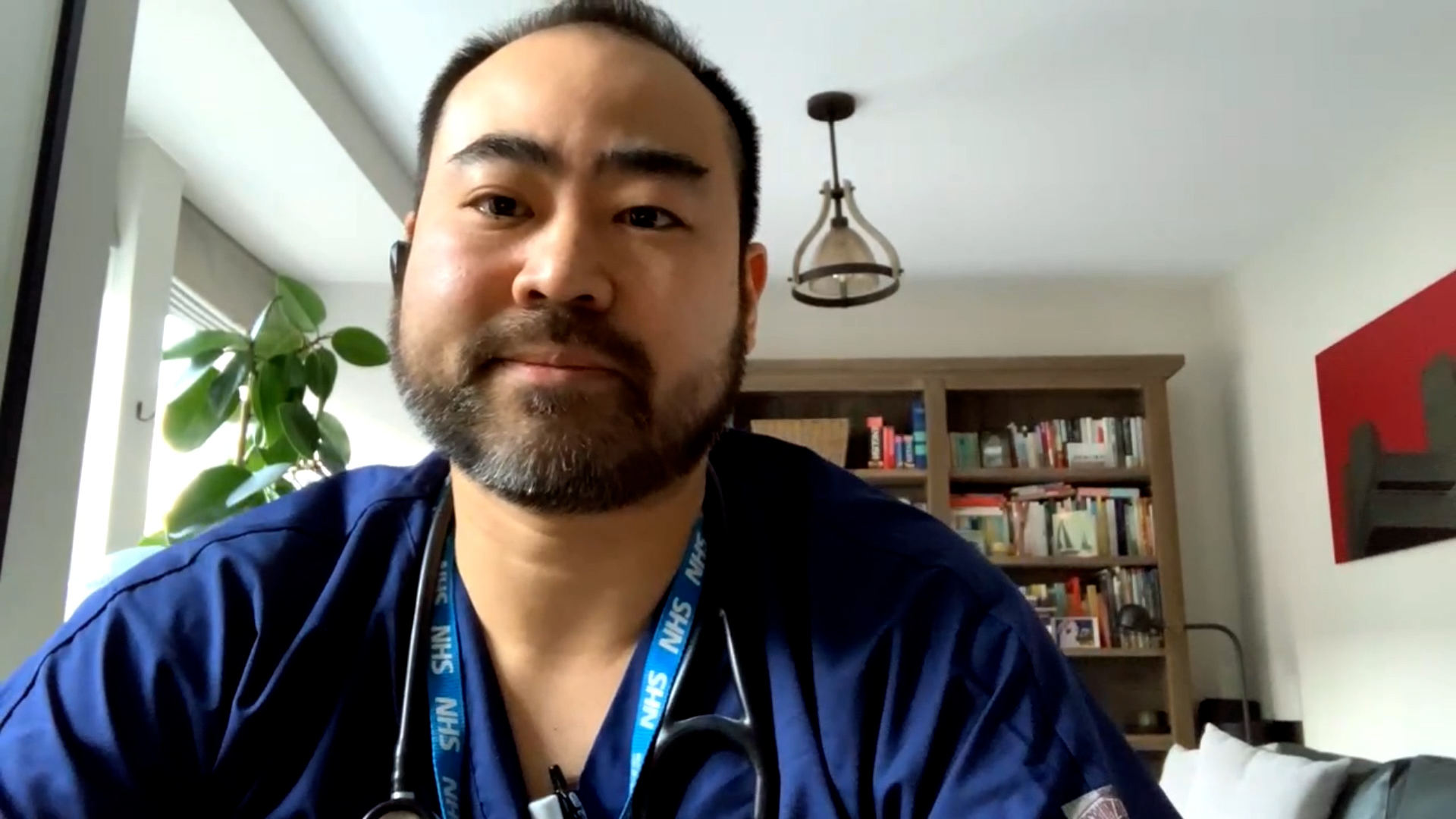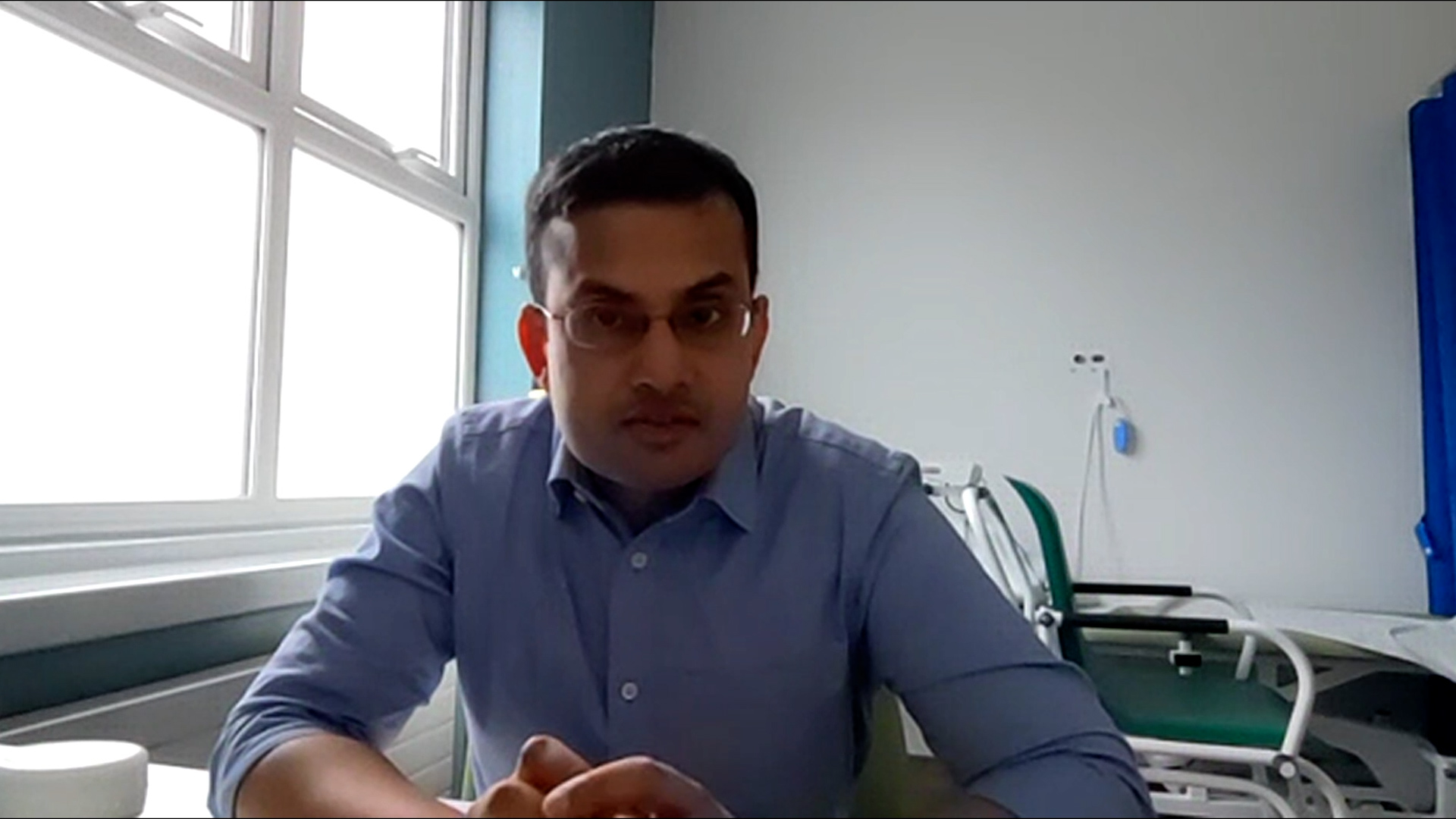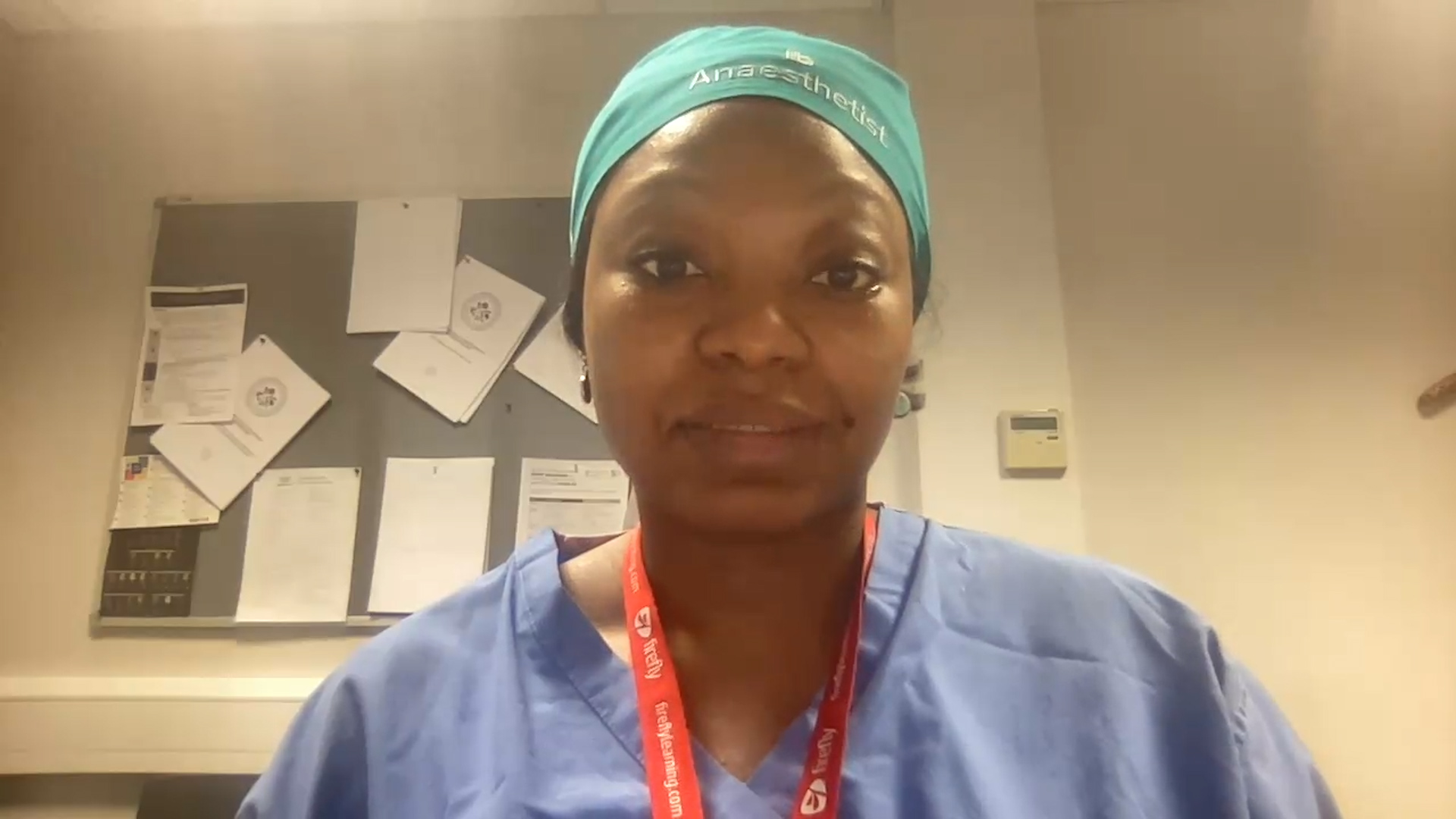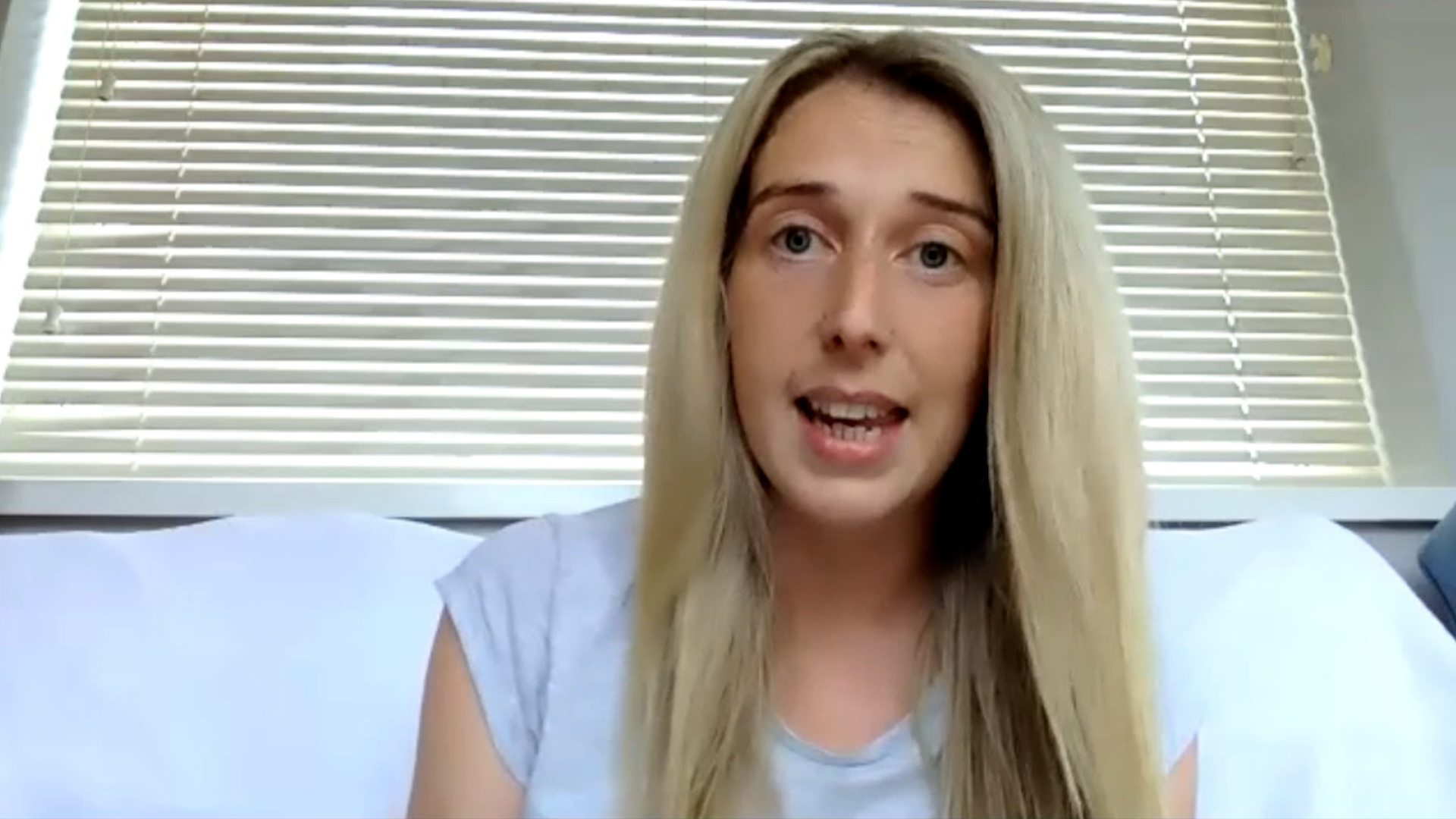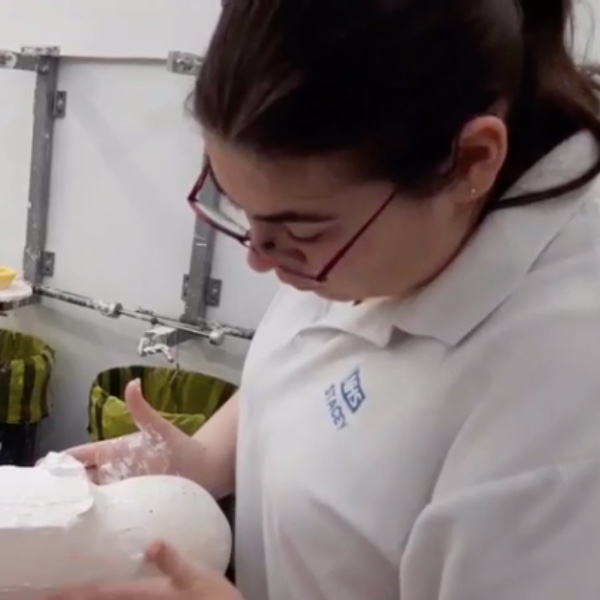Health Care Assistant
Addenbrookes Hospital
Susan M
00:00:03 My name’s Sue, and I’m one of the pre-assessment team for Day Surgery. If somebody comes to the hospital and it’s decided that they need surgery that can be carried out within the Day Surgery unit, we do their pre-assessment to make sure they’re actually suitable for day surgery, and carry out any pre-operative tests that might be required. Such as an ECG, which is an Echo Cardiograph, which looks at the electrical activity of the heart.
00:00:37 When I left school, in my era, girls – ninety-nine percent of us – went to work in the City of London, West End, as – in offices. You did typing, you did shorthand, and that’s where our paths went. And I did that for a couple of years, then I got married and had kids. And then I did lots of part time jobs.
00:01:02 I’d always had a hankering to be something in the health profession, but never had the qualifications to be able to do so. So I came to the hospital and worked for eighteen months as a ward domestic. Where you’d clean the wards, you served the patients’ food. And after about eighteen months, the Ward Sister asked me to come and work for her as an auxiliary nurse. And from there twenty years later I’m – here I am now.
00:01:37 My first day working in the hospital was nerve-wracking, and I remember that – my many trips into the sluice. A sluice is where you empty bed pans, and the dirty linen goes, and not – it’s the hubbub of the ward, but not the nicest place to be. And I – my memories of the first day was that I didn’t actually eat anything all day!
00:02:04 You gained so much experience so quickly, and there’s also lots of support, lots of teaching, and they brought out the NVQs, and I was encouraged to apply for a place, which I did. Got a place, and was able to complete my NVQs, and that enabled me to take on further skills of taking an ECG, and also being able to take blood from a patient.
00:02:34 Many times sitting there – and I can remember the tears welling up in my eyes looking at the anatomy and physiology questions. I can’t do this, it’s too hard, it’s too much, they expect too much of me. But it just – I just wanted to achieve it, I wanted to be able to do the extra skills that went with the job, and I think just to prove to myself that actually I could do it. And to achieve something that I never had before.
00:03:02 We have a Manager who has been my Manager for many many years, and she laughs that I follow her around the hospital. But she’s always been a great sense of support and encouraged me, and she wrote me a lovely letter telling me how proud she was of me, and what a credit I was and a role model to people to follow in my path. And when I actually went to receive my NVQ award certificate, she came to see me receive it. And that was a very proud moment, that she felt – thought enough of me to come and do that.
00:03:43 I could of carried on working in the City, but feel that probably would have just remained a little cog in a great big wheel. The job I do now, I’ve excelled I think, or shone as a little star, within the NHS.
00:03:59 ENDS
Susan has never regretted leaving her job in the city (where she felt like a little cog in a great big wheel) to join the NHS (where she has excelled). Starting as a ward domestic she went on to train as an auxillary nurse is now a member of the day surgery pre-assessment team. Battling her way through exams, she has proved to herself, and her mentors, that she can do it!
More information about Nursing auxiliaries and assistants
The UK average salary is £29,813
There are 37.5 hours in the average working week
The UK workforce is 47% female and 53% male
Future employment
- Performs basic clinical tasks such as taking patients’ temperature and pulse, weighing and measuring, performing urine tests and extracting blood samples;
- Prepares patient for examination and treatment;
- Distributes and serves food, assists patients in feeding and prepares snacks and hot drinks;
- Assists patients in washing, dressing, toiletry activities and general mobility;
- Changes bed linen, makes beds and tidies wards.
